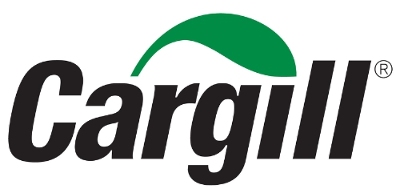We just wrapped up Tecnon OrbiChem’s Biomaterials newsletter for this month, and now I have to focus on starting my glycerine presentation for the incoming ICIS Pan American Oleochemicals conference in October.
Speaking of glycerine….one of the things I sometimes monitor from companies’s restructuring and internal business changes is through their career section, who they hire (and fire). Here is an interesting recent announcement from Cargill appointing an ex-BASF/Gattefosse guy for its personal care business. Cargill said Tony Jaillot will lead the business as its new global general manager where the business will focus on plant-based, sustainably-sourced ingredients for the personal care and cosmetics market. Glycerine is a major staple in cosmetics and personal care ingredients. I believe Cargill is also a major glycerine producer (I have to check…)
Now, while Cargill has long been offering natural ingredients such as xanthan gum, glycerin, starches, sorbitol, pectins, alcohols and vegetable oils that have long been applied to cosmetics and personal care, the key to becoming a successful high-margin, high-value ingredient supplier in this market is how good a company’s technical expertise are in formulations. I used to attend the annual NY Society of Cosmetic Chemists Suppliers Day in New Jersey, and this trade show has grown so big each year they had to relocate to larger venues (if only they could go to Javitz instead…). Since I started attending this show more than 13 years ago, I had not seen any significant downturn in demand for natural ingredients from the cosmetics and personal care sector.
Unfortunately, I have not really follow closely this market since I left ICIS Chemical Business magazine in 2012 but what I noticed is that many renewable chemical companies have this market in their target areas, case in point: Amyris with their Neossance line; Terravia which recently sold its Algenist business; Elevance Renewable Sciences with its surfactants, diacids and esters portfolio; DuPont’s Zemea 1,3 propanediol as preservatives and humectants; succinic acid also for esters formulation; PHA in micro-exfoliation; and of course various oleochemical derivatives that have long been used as cosmetic and personal care ingredients.
According to Kline & Company, the natural beauty and personal care market is now estimated at $36 billion worldwide at the manufacturers’ level and continues to experience more than five consecutive double-digit growth. Once thought of as a passing trend, the natural and organic movement has solidified itself as an industry mainstay that gets stronger each year thanks to growing consumer demand and higher performance products.
By the way, going back to Cargill, I read an interesting article about the company’s Envirotemp™ FR3 natural ester fluid, a vegetable oil-based transformer oil, which was used by the Brazilian utility company, Light, responsible for energy delivery in the recent Olympic athletes’ village in Rio. The utility company uses three FR3 fluid-filled power transformers in a single power station.
Cargill also supported Light in installing a storage tank for backup FR3 fluid to be used in case of an emergency or for maintenance. The fluid can withstand temperatures of up to 360ºC before igniting. To date, more than 1 million FR3 fluid-filled power and distribution transformers are in operation globally. FR3 fluid is biodegradable in both soil and water. Cargill anticipates strong growth for the product’s adoption over the next two years and is ramping up production at its Mairinque plant, in Sao Paulo, to meet the demand.




